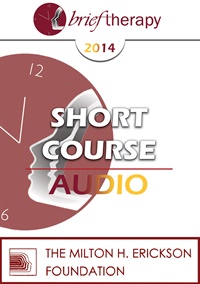
- Average Rating:
- Not yet rated
- Topic Areas:
- Short Courses | Brief Therapy | Strengths-Based | Therapist Development
- Categories:
- Brief Therapy Conference | Brief Therapy Conference 2014
- Faculty:
- Bob Bertolino, PhD
- Duration:
- 1:33:45
- Format:
- Audio Only
- Original Program Date:
- Dec 11, 2014
- Short Description:
- As challenges to well-being increase, practitioners are called to move beyond interventions to improve functioning to those that help clients flourish. Doing so will help clients to exercise greater resilience and do “better than zero.” This session offers strategies to develop gratitude, meaning, and character strengths that foster greater overall well-being.
- Price:
- $15.00 - Base Price
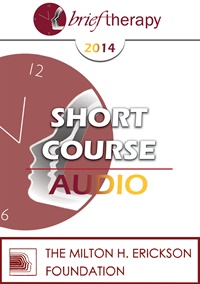
- Average Rating:
- Not yet rated
- Topic Areas:
- Anxiety | Depression | Trauma | Short Courses | Brief Therapy
- Categories:
- Brief Therapy Conference | Brief Therapy Conference 2014
- Faculty:
- Teresa Robles, MA, PhD
- Duration:
- 1:30:29
- Format:
- Audio Only
- Original Program Date:
- Dec 11, 2014
- Short Description:
- After a presentation of original, new conceptualizations on Anxiety, Depression, Trauma and Universal Wisdom, presenter will do an exercise to participants for contacting their Universal Wisdom and to learn how to utilize It. She will demonstrate and participants will practice and discuss exercises and how to teach them to clients.
- Price:
- $15.00 - Base Price
Tags: Anxiety Brief Therapy Depression Trauma
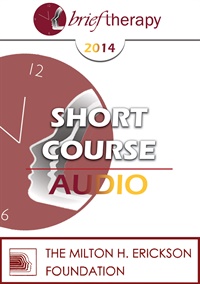
- Average Rating:
- Not yet rated
- Topic Areas:
- Short Courses | Brief Therapy | Footprinting | Relationships
- Categories:
- Brief Therapy Conference | Brief Therapy Conference 2014
- Faculty:
- Susan Dowell, MSW
- Duration:
- 1:27:36
- Format:
- Audio Only
- Original Program Date:
- Dec 11, 2014
- Short Description:
- Footprintings is a projective exploratory model, designed to help patients get unstuck from a self-limiting personal narrative. Nine color sets of Footprintings become literal tools to represent and track shifting states of consciousness and to access untapped resources and body wisdom. This workshop will be both didactic and experiential.
- Price:
- $15.00 - Base Price
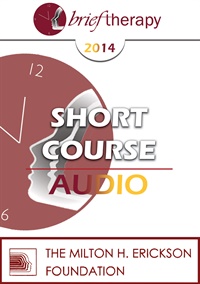
- Average Rating:
- Not yet rated
- Topic Areas:
- Short Courses | Multicultural | Existential Therapy | Brief Therapy | Meditation, Spirituality and Yoga
- Categories:
- Brief Therapy Conference | Brief Therapy Conference 2014
- Faculty:
- Naji Abi-Hashem, PhD
- Duration:
- 1:06:56
- Format:
- Audio Only
- Original Program Date:
- Dec 11, 2014
- Short Description:
- This short course reframes resilience as a cultural, communal and spiritual force rather than just an individual trait. Through stories, cross-cultural examples and practical questions, the presenter shows how people draw strength from heritage, community bonds, generational wisdom and meaningful relationships. Participants learn how to help clients reconnect with cultural identity, mobilize resources, and build resilience that supports adaptation, creativity and purpose in a rapidly changing world.
- Price:
- $15.00 - Base Price
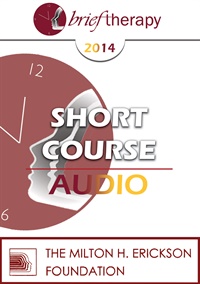
- Average Rating:
- Not yet rated
- Topic Areas:
- Short Courses | Brief Therapy | Hypnosis | Language of Hypnosis | Trauma
- Categories:
- Brief Therapy Conference | Brief Therapy Conference 2014
- Faculty:
- Norma Barretta, PhD | Phillip Barretta, MA, MFT
- Duration:
- 1:12:29
- Format:
- Audio Only
- Original Program Date:
- Dec 11, 2014
- Short Description:
- BT14 Short Course 14 - Tapping into Reserves You Never Knew You Had Using Your Personal Power - Norma Barretta, PhD and Philip Barretta, MA, MFT In the brief treatment of trauma, using hypnosis, not only amplifies the benefits, it also shortens the treatment time. Creating just the right metaphor, choosing the best language patterns, and using the patient’s ( as well as the therapist's) own resources can intensify and direct the deep desire for healing far more quickly than traditional therapy ever could. Tapping into their mutual personal power, enables the intervention. A demonstration of anchoring resources will be part of this short course.
- Price:
- $15.00 - Base Price
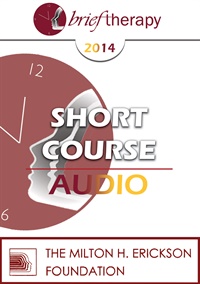
- Average Rating:
- Not yet rated
- Topic Areas:
- Anxiety | Depression | Trauma | Short Courses | Milton Erickson | Brief Therapy
- Categories:
- Brief Therapy Conference | Brief Therapy Conference 2014
- Faculty:
- Dale Bertram, PhD | Mike Rankin, MA
- Duration:
- 1:33:32
- Format:
- Audio Only
- Original Program Date:
- Dec 11, 2014
- Short Description:
- This workshop focuses on the nuts and bolts of providing online Ericksonian Clinical Supervision. It will address how to select an online platform, the major legal and ethical issues in providing online supervision, and a focused discussion on how to utilize the online environment to provide quality supervision. Participants will leave this workshop with a good overview about how to conduct digital (online) supervision in ethical and useful ways.
- Price:
- $15.00 - Base Price
Tags: Anxiety Depression Trauma Brief Therapy
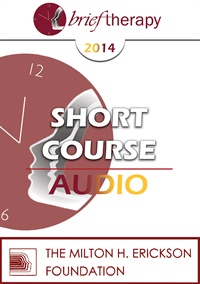
- Average Rating:
- Not yet rated
- Topic Areas:
- Anxiety | Depression | Trauma | Short Courses | Brief Therapy | Ericksonian Hypnosis and Therapy Techniques | Consciousness
- Categories:
- Brief Therapy Conference | Brief Therapy Conference 2014
- Faculty:
- Joseph Dowling, MS, LPC
- Duration:
- 1:27:36
- Format:
- Audio Only
- Original Program Date:
- Dec 11, 2014
- Short Description:
- Milton H. Erickson, M.D. understood that the conscious (thinking) mind is where symptoms are frequently created and cultivated while the subconscious mind is a limitless storehouse of healing energies, potentials, and solutions. This short course will describe a deceptively simple, Ericksonian approach to becoming powerfully calm. Live demonstrations, experiential zone exercises, and case studies will be facilitated to teach how solution-focused questions, strategic interventions, and formal/conversational hypnotherapy effectively treat anxiety, depression, and trauma.
- Price:
- $15.00 - Base Price
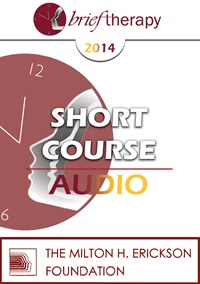
- Average Rating:
- Not yet rated
- Topic Areas:
- Trauma | Short Courses | Brief Therapy | Binds
- Categories:
- Brief Therapy Conference | Brief Therapy Conference 2014
- Faculty:
- John Lentz, D. Min.
- Duration:
- 1:23:01
- Format:
- Audio Only
- Original Program Date:
- Dec 11, 2014
- Short Description:
- This new advanced brief therapy approach uses positive double binds to do intentionally what happens naturally when everything seems to go right. It transforms trauma’s rigid thinking and can greatly assist your clients to heal, make better decisions and believe more positively in themselves and their future.
- Price:
- $15.00 - Base Price
Tags: Trauma Binds Brief Therapy
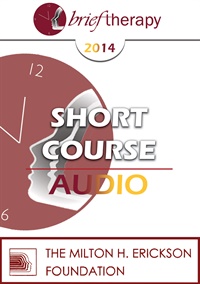
- Average Rating:
- Not yet rated
- Topic Areas:
- Anxiety | Depression | Trauma | Short Courses | Ericksonian Hypnosis and Therapy Techniques | Reality Therapy | Brief Therapy
- Categories:
- Brief Therapy Conference | Brief Therapy Conference 2014
- Faculty:
- Robert Wubbolding, EdD
- Duration:
- 1:29:28
- Format:
- Audio Only
- Original Program Date:
- Dec 11, 2014
- Short Description:
- A demonstration and a 12-minute DVD illustrate how to assist clients to make effective choices satisfying their needs, especially power or inner control. Merging reality therapy with Ericksonian principles helps clients discover and choose alternatives to the manifestations of past trauma, the pain of powerlessness due to anxiety and depression.
- Price:
- $15.00 - Base Price
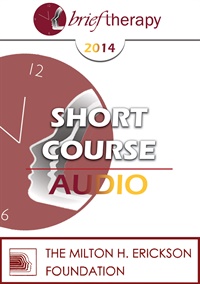
- Average Rating:
- Not yet rated
- Topic Areas:
- Anxiety | Depression | Trauma | Short Courses | Brief Therapy
- Categories:
- Brief Therapy Conference | Brief Therapy Conference 2014
- Faculty:
- Virgil Hayes, DO
- Duration:
- 1:33:07
- Format:
- Audio Only
- Original Program Date:
- Dec 11, 2014
- Short Description:
- There are multiple explanations and theories to explain the creation of anxiety, depression and trauma creation. Many emphasize pathology, permanence of conditions and use multi-syllable words and encourage medical interventions to treat symptoms. This paradigm is often not effective for improving the lives of individuals treated. This course looks at non-medical underpinnings to conceptualize the creation of anxiety, depression and trauma.
- Price:
- $15.00 - Base Price
Tags: Anxiety Depression Trauma Brief Therapy
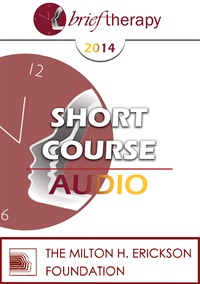
- Average Rating:
- Not yet rated
- Topic Areas:
- Anxiety | Depression | Short Courses | Communication | Neurobiology | Brief Therapy | Trauma
- Categories:
- Brief Therapy Conference | Brief Therapy Conference 2014
- Faculty:
- Bart Walsh, MSW
- Duration:
- 1:31:46
- Format:
- Audio Only
- Original Program Date:
- Dec 11, 2014
- Short Description:
- There are multiple explanations and theories to explain the creation of anxiety, depression and trauma creation. Many emphasize pathology, permanence of conditions and use multi-syllable words and encourage medical interventions to treat symptoms. This paradigm is often not effective for improving the lives of individuals treated. This course looks at non-medical underpinnings to conceptualize the creation of anxiety, depression and trauma. This conceptualization when understood by the clinician; makes them a better facilitator and co-creator in the treatment process. A natural, holistic understanding also empowers the clinician and client and moves all parties involved closer to health.
- Price:
- $15.00 - Base Price
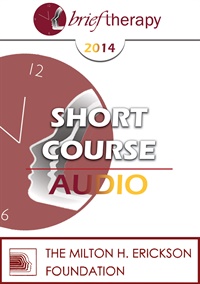
- Average Rating:
- Not yet rated
- Topic Areas:
- Short Courses | Awareness Integration Model | Brief Therapy
- Categories:
- Brief Therapy Conference | Brief Therapy Conference 2014
- Faculty:
- Foojan Zeine, Psy.D., MFT
- Duration:
- 1:21:45
- Format:
- Audio Only
- Original Program Date:
- Dec 11, 2014
- Short Description:
- Everyone has the capability and deserves to live a fulfilled life, however, many get caught in the childhood and traumatic experiences that does not allow clarity to learn and sustain new effective skills. Learn about Awareness Integration Model, a structured brief therapeutic approach that synthesizes numerous theories, resulting in higher self-esteem, releasing negative core beliefs and attached emotional charge, setting goals and action plans to reach the desired life results.
- Price:
- $15.00 - Base Price
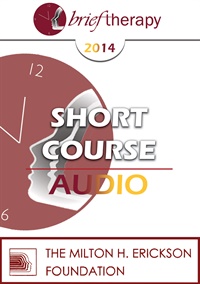
- Average Rating:
- Not yet rated
- Topic Areas:
- Short Courses | Borderline | Brief Therapy | Personality Disorders
- Categories:
- Brief Therapy Conference | Brief Therapy Conference 2014
- Faculty:
- Michael Munion, MA, LPC
- Duration:
- 1:30:14
- Format:
- Audio Only
- Original Program Date:
- Dec 11, 2014
- Short Description:
- This course examines the nature of Borderline Personality Disorder (BPD), and presents an integrated model for treatment of specific issues in brief, solution-focused episodes. Core elements of a safety plan and development of a community resource network are described. Careful management of the therapeutic relationship is a critical part of this approach. Some specific protocols for common BPD issues, such as suicidal ideation and self-injurious behaviors are elaborated.
- Price:
- $15.00 - Base Price
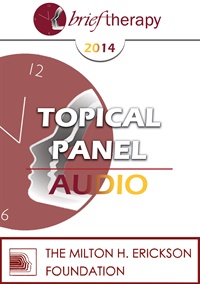
- Average Rating:
- Not yet rated
- Topic Areas:
- Post-Traumatic Stress Disorder (PTSD) | Trauma | Topical Panels | Brief Therapy
- Categories:
- Brief Therapy Conference | Brief Therapy Conference 2014
- Faculty:
- Francine Shapiro, PhD | Bill O'Hanlon, MS | Bessel van der Kolk, MD
- Duration:
- 1:02:30
- Format:
- Audio Only
- Original Program Date:
- Dec 13, 2014
- Short Description:
- BT14 Topical Panel 02 - Post Traumatic Disorders - Francine Shapiro, PhD, Bill O’Hanlon, MS, and Bessel van der Kolk, MD Educational Objectives: Compare and contrast clinical philosophical perspectives of experts.
- Price:
- $15.00 - Base Price
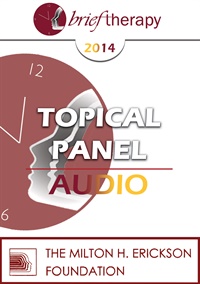
- Average Rating:
- Not yet rated
- Topic Areas:
- Topical Panels | Brief Therapy | Goals of the Therapist
- Categories:
- Brief Therapy Conference | Brief Therapy Conference 2014
- Faculty:
- Jeffrey Zeig, PhD | Pat Love, EdD | Stephen Gilligan, PhD
- Duration:
- 1:01:29
- Format:
- Audio Only
- Original Program Date:
- Dec 13, 2014
- Short Description:
- BT14 Topical Panel 05 - The Goal of Therapy - Pat Love EdD, Stephen Gilligan, PhD, and Jeffrey Zeig. PhD Educational Objectives: Compare and contrast clinical philosophical perspectives of experts.
- Price:
- $15.00 - Base Price
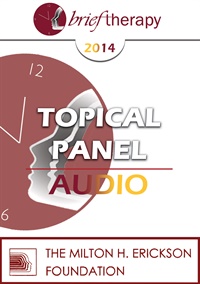
- Average Rating:
- Not yet rated
- Topic Areas:
- Anxiety | Topical Panels | Brief Therapy | Hypnosis | Strategic Therapy
- Categories:
- Brief Therapy Conference | Brief Therapy Conference 2014
- Faculty:
- Lynn Lyons, LICSW | Reid Wilson, PhD | Ronald Siegel, PsyD
- Duration:
- 1:01:07
- Format:
- Audio Only
- Original Program Date:
- Dec 13, 2014
- Short Description:
- Three expert perspectives on treating anxiety converge in this insightful session. Reid Wilson shares strategic CBT methods to change how clients respond to symptoms. Ron Siegel introduces mindfulness techniques to build comfort with anxiety, while Lynn Lyons offers tools from clinical hypnosis and family work to help reinterpret past experiences. All emphasize normalizing anxiety and teaching clients to tolerate, not eliminate, discomfort for long-term resilience.
- Price:
- $15.00 - Base Price
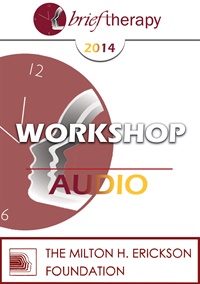
- Average Rating:
- Not yet rated
- Topic Areas:
- Couples Therapy | Workshops | Brief Therapy | Emotionally Focused Therapy (EFT)
- Categories:
- Brief Therapy Conference | Brief Therapy Conference 2014
- Faculty:
- Sue Johnson, EdD
- Duration:
- 1:39:09
- Format:
- Audio Only
- Original Program Date:
- Dec 12, 2014
- Short Description:
- This workshop will outline three key change events in EFT: Negative cycle de-escalation, hold me tight bonding conversations and Attachment injury Forgiveness. Each even will be outline, examples given and specific interventions outline and practiced. Throughout the workshop theory, research and practice will be integrated.
- Price:
- $15.00 - Base Price
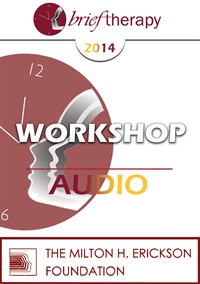
- Average Rating:
- Not yet rated
- Topic Areas:
- Anxiety | Workshops | Unconscious Processes | Brief Therapy
- Categories:
- Brief Therapy Conference | Brief Therapy Conference 2014
- Faculty:
- Steve Andreas, MA, NLP
- Duration:
- 1:05:06
- Format:
- Audio Only
- Original Program Date:
- Dec 12, 2014
- Short Description:
- Learn two very simple, rapid, and direct ways to elicit and transform the key unconscious processes that create anxiety. One utilizes changes in the sensory details of the feeling itself; the other changes the tempo of the internal worry voice that generates the feeling. Demonstrations, exercises and discussion.
- Price:
- $15.00 - Base Price
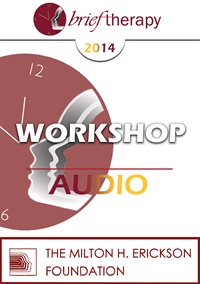
BT14 Workshop 03 - Anxious Kids, Anxious Parents: 7 Ways to Stop the Worry Cycle - Lynn Lyons, LICSW
- Average Rating:
- Not yet rated
- Topic Areas:
- Anxiety | Worry | Workshops | Brief Therapy | Children and Adolescent Therapy
- Categories:
- Brief Therapy Conference | Brief Therapy Conference 2014
- Faculty:
- Lynn Lyons, LICSW
- Duration:
- 1:50:51
- Format:
- Audio Only
- Original Program Date:
- Dec 12, 2014
- Short Description:
- Current research supports the inclusion of both parents and children in the treatment of anxiety in children based on the strong correlation between anxious parents and the subsequent development of anxiety in their children. This workshop will describe seven concrete strategies that teach families to interrupt the worry cycle and its all too common transmission from parent to child.
- Price:
- $15.00 - Base Price
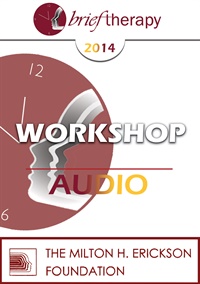
- Average Rating:
- Not yet rated
- Topic Areas:
- Psychotherapy | Workshops | Generative Psychotherapy | Leadership | Therapist Development | Brief Therapy
- Categories:
- Brief Therapy Conference | Brief Therapy Conference 2014
- Faculty:
- Stephen Gilligan, PhD
- Duration:
- 2:02:36
- Format:
- Audio Only
- Original Program Date:
- Dec 12, 2014
- Short Description:
- His workshop will explore how generative psychotherapy can help clients activate the creative consciousness needed to live their lives in positive, fulfilling ways. This process requires the cultivation of self-leadership (and self-COACH) skills, such that a person’s performance self and observer self-work in a mutually respectful, harmonious pattern. The workshop presents some core methods of this approach, including somatic modeling, self-scaling, and engaging the creative unconscious. A demonstration and multiple case examples will illustrate how such methods can allow psychotherapy to be a deeply positive, effective conversation.
- Price:
- $15.00 - Base Price
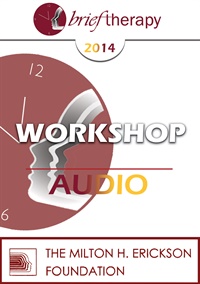
- Average Rating:
- Not yet rated
- Topic Areas:
- Trauma | Workshops | Attachment | Brief Therapy
- Categories:
- Brief Therapy Conference | Brief Therapy Conference 2014
- Faculty:
- Bessel van der Kolk, MD
- Duration:
- 1:58:50
- Format:
- Audio Only
- Original Program Date:
- Dec 12, 2014
- Short Description:
- Traumatic experiences and disorganized attachment affect people differently at different stages of mind and brain development.
- Price:
- $15.00 - Base Price
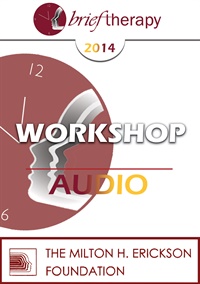
- Average Rating:
- Not yet rated
- Topic Areas:
- Eye Movement Desensitization and Reprocessing (EMDR) | Workshops | Brief Therapy | Trauma
- Categories:
- Brief Therapy Conference | Brief Therapy Conference 2014
- Faculty:
- Francine Shapiro, PhD
- Duration:
- 1:39:56
- Format:
- Audio Only
- Original Program Date:
- Dec 12, 2014
- Short Description:
- This presentation will provide therapeutic guidelines to help identify the source of a wide range of clinical problems, and demonstrate how they can be addressed. EMDR therapy is widely recognized as an effective trauma treatment by organizations such as the American Psychiatric Association and the World Health Organization. In addition, 20 randomized studies demonstrate positive effects of the eye movement component. Research has also clearly demonstrated that certain kinds of life experiences lay the foundation for both mental and physical problems. Clinical and neurobiological research demonstrates that EMDR therapy directly addresses the physiological basis of clinical symptoms and dysfunction.
- Price:
- $15.00 - Base Price
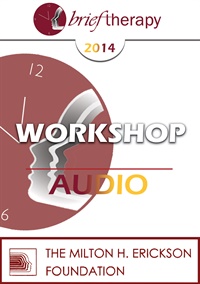
- Average Rating:
- Not yet rated
- Topic Areas:
- Post-Traumatic Stress Disorder (PTSD) | Workshops | Brief Therapy | Psychotherapy | Trauma
- Categories:
- Brief Therapy Conference | Brief Therapy Conference 2014
- Faculty:
- Donald Meichenbaum, PhD
- Duration:
- 1:02:28
- Format:
- Audio Only
- Original Program Date:
- Dec 12, 2014
- Short Description:
- This workshop will demonstrate ways to implement the core tasks of psychotherapy with individuals with Complex PTSD and ways to provide integrated treatment for comorbid disorders such as Prolong and complicated grief, suicidality and substance abuse disorders. A Case Conceptualization Model will be offered that informs treatment decision making. Specific evidence-based interventions will be examined.
- Price:
- $15.00 - Base Price

- Average Rating:
- Not yet rated
- Topic Areas:
- Sex and Sexuality | Workshops | Brief Therapy | Couples Therapy | Intimacy | Relationships
- Categories:
- Brief Therapy Conference | Brief Therapy Conference 2014
- Faculty:
- Pat Love, EdD
- Duration:
- 1:42:06
- Format:
- Audio Only
- Original Program Date:
- Dec 12, 2014
- Short Description:
- Human sexual response is a complex system even when attempting to understand one person let alone two people in a relationship. It is helpful, therefore to have a way to organize decades of research and clinical practice in a manner which can be shared with clients. A practical schema will be presented to educate and motivate clients interested in improving their intimate connection. Lecture, video, original handouts and experiential exercises will be utilized.
- Price:
- $15.00 - Base Price
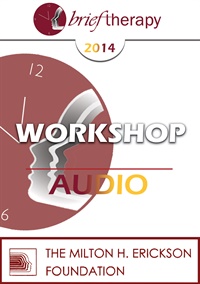
- Average Rating:
- Not yet rated
- Topic Areas:
- Anxiety | Depression | Workshops | Brief Therapy
- Categories:
- Brief Therapy Conference | Brief Therapy Conference 2014
- Faculty:
- Michael Yapko, PhD
- Duration:
- 1:58:22
- Format:
- Audio Only
- Original Program Date:
- Dec 12, 2014
- Short Description:
- This workshop examines rumination as a coping style that keeps clients trapped in anxiety and depression. Through research, clinical stories, and live experiential exercises, participants see how endless “why” questions and global thinking erode problem-solving and resilience. Practical strategies—such as discrimination skills, reframing inner dialogue, and hypnotic or mindfulness techniques—demonstrate how clients can shift from passive analysis to effective action.
- Price:
- $15.00 - Base Price
Tags: Anxiety Brief Therapy Depression

